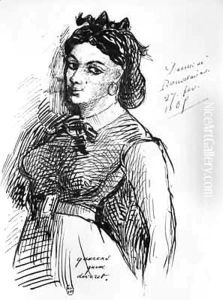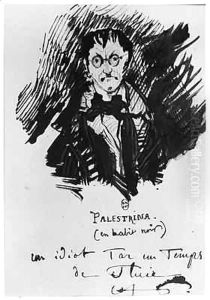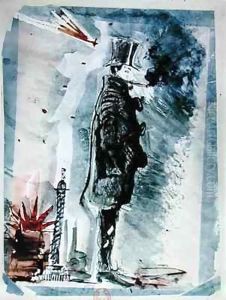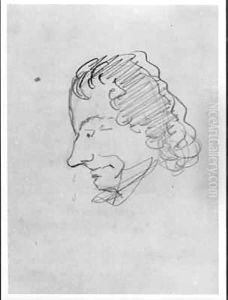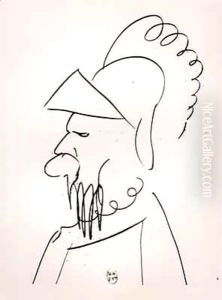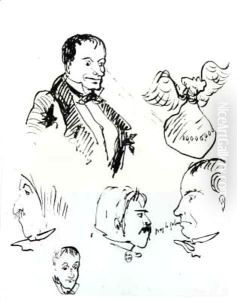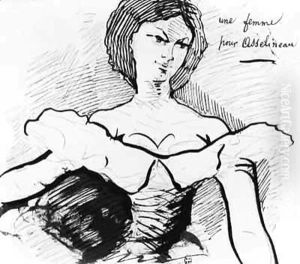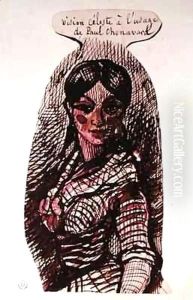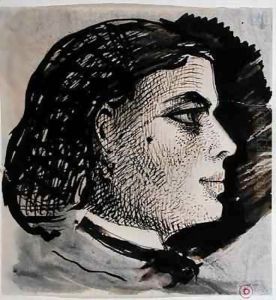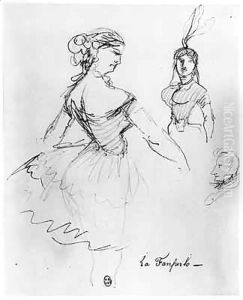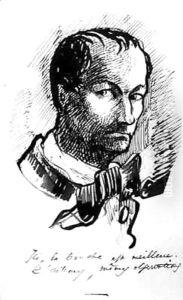Charles Pierre Baudelaire Paintings
Charles Pierre Baudelaire was a French poet, essayist, art critic, and translator, best known for his volume of poetry, 'Les Fleurs du mal' (The Flowers of Evil), published in 1857. This work is considered one of the masterpieces of French literature and has significantly influenced modern poetry. Born on April 9, 1821, in Paris, France, Baudelaire's early life was marked by the loss of his father in 1827 and a complex relationship with his stepfather, whom he resented. Despite this, his stepfather funded Baudelaire's education at the prestigious Lycée Louis-le-Grand, where he developed an interest in literature.
Baudelaire's life was characterized by financial difficulties, health problems, and legal issues - notably, the public obscenity trial following the publication of 'Les Fleurs du mal'. This collection of poems delved into themes of beauty, decadence, eroticism, and mortality, challenging the moral sensibilities of the time and leading to its condemnation in court. However, this notoriety only added to Baudelaire's fame and his influence on the symbolist movement.
Apart from poetry, Baudelaire made significant contributions to the world of art criticism, advocating for the works of artists like Eugène Delacroix and Édouard Manet. He was also one of the first European writers to appreciate and translate the works of Edgar Allan Poe, whom he considered a kindred spirit.
Baudelaire's health began to decline in the late 1850s, exacerbated by his long-term use of laudanum and opium. He suffered a massive stroke in 1866 that left him partially paralyzed, and he spent the last year of his life in a semi-paralyzed state, unable to speak or write. Charles Baudelaire died on August 31, 1867, in Paris, at the age of 46. Despite his relatively short life and the controversies that surrounded him, Baudelaire's work has left an indelible mark on literature, paving the way for the modernist movement and influencing countless poets and writers.

